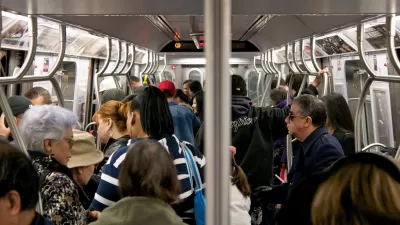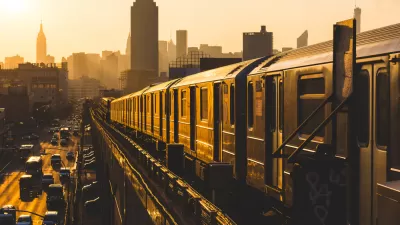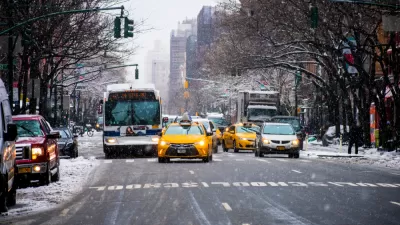The agency says it won’t take out any new loans to finance its planned improvements and is finding other ways to cut costs.

The New York Metropolitan Transportation Authority announced it will not be borrowing any new money to fund repairs on the NYC transit system in an effort to cut costs, reports Michelle Kaske for Bloomberg CityLab. “The MTA had $47.7 billion of debt, including $25.7 billion that’s repaid from farebox and bridge and toll revenue, as of March 20, according to MTA documents.”
Janno Lieber, the MTA’s chief executive officer “he is confident that the MTA can find efficiencies to avoid shelving or postponing much-needed upgrades.” The agency will be able to use $1.2 billion freed up after the administration took over the Penn Station redesign project and has already reduced spending by bundling some capital projects together.
According to Kaske, “The MTA’s capital plan includes upgrading subway signals that are almost a century old, renovating Grand Central Terminal’s train shed, rehabilitating aging power substations and purchasing thousands of new rail cars.”
FULL STORY: NYC’s MTA to Cut Costs Instead of Borrowing More to Fund Upgrades

Planetizen Federal Action Tracker
A weekly monitor of how Trump’s orders and actions are impacting planners and planning in America.

Restaurant Patios Were a Pandemic Win — Why Were They so Hard to Keep?
Social distancing requirements and changes in travel patterns prompted cities to pilot new uses for street and sidewalk space. Then it got complicated.

Map: Where Senate Republicans Want to Sell Your Public Lands
For public land advocates, the Senate Republicans’ proposal to sell millions of acres of public land in the West is “the biggest fight of their careers.”

Maui's Vacation Rental Debate Turns Ugly
Verbal attacks, misinformation campaigns and fistfights plague a high-stakes debate to convert thousands of vacation rentals into long-term housing.

San Francisco Suspends Traffic Calming Amidst Record Deaths
Citing “a challenging fiscal landscape,” the city will cease the program on the heels of 42 traffic deaths, including 24 pedestrians.

California Homeless Arrests, Citations Spike After Ruling
An investigation reveals that anti-homeless actions increased up to 500% after Grants Pass v. Johnson — even in cities claiming no policy change.
Urban Design for Planners 1: Software Tools
This six-course series explores essential urban design concepts using open source software and equips planners with the tools they need to participate fully in the urban design process.
Planning for Universal Design
Learn the tools for implementing Universal Design in planning regulations.
Heyer Gruel & Associates PA
JM Goldson LLC
Custer County Colorado
City of Camden Redevelopment Agency
City of Astoria
Transportation Research & Education Center (TREC) at Portland State University
Camden Redevelopment Agency
City of Claremont
Municipality of Princeton (NJ)





























